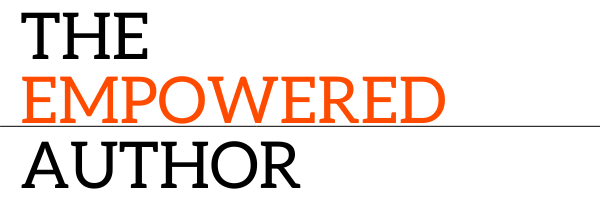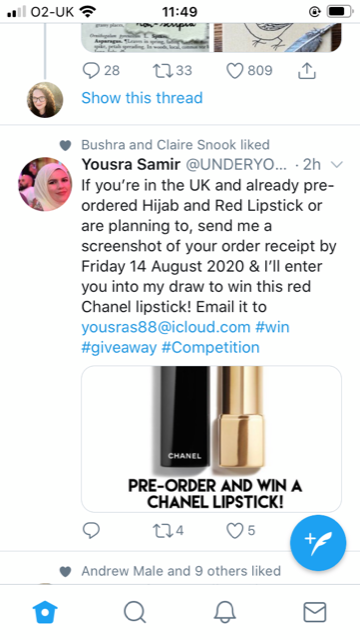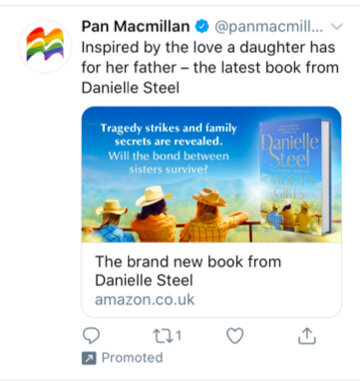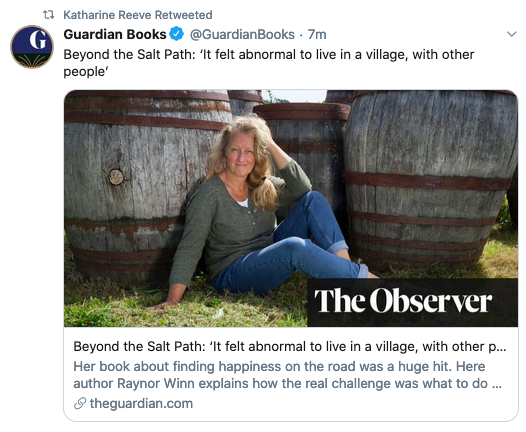How traditionally published authors can add to their publisher's marketing & publicity
Note: this post is mostly aimed at debut authors, but there are definitely useful tips for other trad published authors.
The pandemic has had a major impact on the book industry this year, with bookshops closed, literary festivals cancelled or gone virtual and most publishers have moved lots of their authors’ publication days. This has culminated in a huge number of new books publishing from early September onwards to capture the pre-Christmas sales period.
If you are one of the authors being traditionally published in this period, you may be thinking of ways you can add to what your publisher is doing.
The first thing to do is to ask your publisher for the marketing and publicity plan for your book (if they haven’t sent it to you already). I do speak to authors who aren’t sent plans at all, so this could be included in a few emails from your editor/marketer/publicist.
Worth noting here, marketing and publicity plans vary wildly and in simple terms, the amount of money and time invested in promoting your book will relate to:-
- How much of a priority you are to your imprint/publisher (in relation to the other books & authors on their list)
- How much commercial potential they see in your book (if early signs are that your book is creating a lot of buzz or getting a lot of pre-orders), they may add to their plans
This may be disheartening, but in my mind it is useful to know the realities of the industry and be positive about how and where you can add value.
So, you have a marketing and publicity plan in your hands. It could include a number of different elements. Hopefully it will identify your target readership, this may be comparable authors – so, fans of Jill Mansell, Katie Fforde and it may also mention media that your target audience consumes, be that the Sunday Times, Saga magazine, or How To Fail podcast.
Both of these will help shape the targetting of your marketing and publicity.
Marketing activity in the plan could include any of the following:-
1. Book blog tour
This is where your book tours a number of book blogs usually over publication week/10 days. Bloggers may review your book or post an excerpt or interview you. And they will share their posts to their social media followers and often post your reviews to Amazon & Goodreads.
This will put your cover in front of readers during the week of publication and you’ll gain some reviews which are also valuable.
- If your publisher hasn’t organised a book blog tour, this is something you could certainly spend your money on (around £100), but you do need to plan at least 6 weeks ahead of time. My go-to tour organiser is Anne Cater. If you want to find bloggers who review books in your genre, you can find them here. I do not recommend you try to run a blog tour yourself unless you already have established relationships with bloggers.
2. NetGalley
This is a service that publishers pay for to create early buzz for your book (with reviewers, librarians, journalists and influencers) and get early reviews (previews). Your book is put onto NetGalley and reviewers will request to read it, your publisher will allow or refuse this request. If you are a debut you obviously won’t get as many requests as an established author, so they may say yes to everyone.
- If your publisher hasn’t put your book on NetGalley it isn’t something I recommend you do as it is prohibitively expensive for authors paying individually. I am going to link to blogs giving you ways to get reviews for your books at the bottom of this post.
3. Amazon advertising
If you have Amazon advertising on your plan this is a very good thing. Your publisher is paying for your book to appear on Amazon pages when people search or browse for authors categories, genres etc. Your book ads may appear like this.
Amazon ads can be very effective in driving sales as readers are on Amazon searching for books, see your ad, click and buy. Also, your publisher will be able to see what works with your ads and tweak and change them to improve effectiveness.
Your publisher may also spend money on Kobo, Apple Books and with Waterstones or Foyles to appear on their site or in their newsletters. (This is unlikely if you are a debut).
- If your publisher isn’t running Amazon ads it isn’t something you can do for yourself because your publisher manages your Amazon account.
4. Pre-order campaign
Your publisher may focus some energy on driving sales ahead of your publication day (pre-orders). Getting as many pre-orders as possible is a good idea because they will all go towards your first week’s sales and give you a chance to chart well. This is something you can build on during publication week and the following weeks. There are many marketing tactics for encouraging pre-orders, here are a few examples:-
- If your publisher isn’t running a pre-order campaign this is certainly something you can do. Adapt a few of the ideas here (and something you can do with a small amount of money).
5. Facebook/Instagram/Twitter advertising
Your publisher may spend money on targeted ads on other social media – publishers tend to focus on Facebook, then Instagram (or both together) and I have started to see more books advertised on Twitter lately. (Again, this is unlikely if you are a debut). Ads will look something like this.
Facebook ads
Instagram ads
Twitter ads
If your publisher isn’t runnng any Facebook/Twitter/Instagram ads for your books, this is something you can do, but things to consider -
this will take time to do effectively
you many sell books but not get a positive return on investment (remember that return is not how much book costs to readers, but how much money you make from each book)
make sure your ads are consistent with your publisher
test with a small amount of money (£30 - £50) if you do want to run ads
you might think that paying for ads that build your newsletter list and/or social media audience is a better investment than book ads (this is my view).
6. BookBub
BookBub is an email newsletter that goes to over 3 million book-lovers in the UK who want ebook deals (99p, free). It is often used to promote a book when it is on a deal to drive large number of readers. (This is more likely to happen 3 months, 6 months, a year after publication as part of a pricing strategy).
BookBub now offers ads on their newsletter for new book promotions too. (with your book at full price). Again, this is fairly unlikely for a debut.
BookBub newsletters are an effective (but quite costly) way to sell books. There are other ebook deals newsletters out there too.
If your publisher doesn’t promote your book on a BookBub newsletter, it isn’t something I recommend trad published authors organise themselves because it is expensive and you don’t have control over your pricing strategy. If you can encourage your publisher to do one, all the better, it costs £300 up.
7. Publisher activity
Depending on the size of your publisher, your book will be promoted on their website, across their social media accounts and their email newsletter.
—
This is by no means a comprehensive list of what can go into a book marketing campaign, but certainly from what I have seen for debut authors this more than covers it.
Now onto publicity …
The aim of publicity is for you and your book to be featured in relevant media. This includes newspapers, magazines, podcasts, and influencers. In larger publishers, the publicity and marketing teams are separate, and you may be given a publicist who will communicate with you directly. For smaller publishers, this won’t be the case - someone else will take on this publicity role.
Your publicist will send out a press release to a selection of their contacts (often with an ARC – advanced reading copy of your book). This will happen weeks or months ahead of publication so they can line things up around publication day.
Your publicist will have established relationships with journalists and will know who might be interested in your book and or your story. As you can imagine, author has new book out isn’t exactly newsworthy, so your publicist will focus on hooks that can tie into the editorial/themes of media. This may include topics/themes around your life experiences, like this.
Publicity is certainly an area where you can add to what your publisher is doing. Make sure you communicate your activity with them so there is no crossover.
What I would recommend for boosting your own publicity:
- Think local – newspapers, radio, book clubs are often very interested in local authors.
- Local bookshops – definitely introduce yourself and your book and offer to sign copies of your book. The good thing about being traditionally published is that any bookshop can order copies of your book. Also, why not ask if they’d like to work with you on a virtual launch of your book.
- Think genre – every genre has a community of fans and readers who are active across social media (& in the real world). If you haven’t already, get to grips with your community – the festivals, Facebook groups, podcasts, virtual events, bloggers, Twitter chats with a specific hashtags – you will see that there is always a lot of activity that you could potential ask to join.
- Think niche – every niche also has a community of fans and readers as above. Think about the niche interests that your book may include - folklore, sewing, parenting etc
- Your social media - I am sure your publisher has given you tips on getting those most out of social media, so I won’t go into it here (a few links below too)
- Your launch – as there are no physical events happening in bookshops or elsewhere so you will need to run a virtual event. Your publicist will help support/organise your launch.
- Your contacts – if you have any personal contacts at all, do ask for support or share ideas.
There are a few options here:
Facebook Live – this is worth doing if you have a decent following and/or you can drive 30+ people to the event. Author, Mark Edwards runs brilliant Facebook Live launches with giveaways, readings, Q&A and some other fun elements. He wrote about them here.
Zoom – this gives you an option to do multi-person events with other authors – good for a more chatty event and you can encourage people to register too (& email them post event). (FYI – you can do multi-person events on Facebook too if you use something like Be.live – but you have to pay for it)
Ideas for your launch
Partner with a bookshop, blogger or other organisation for your launch
Collaborate with other authors for a joint launch





















